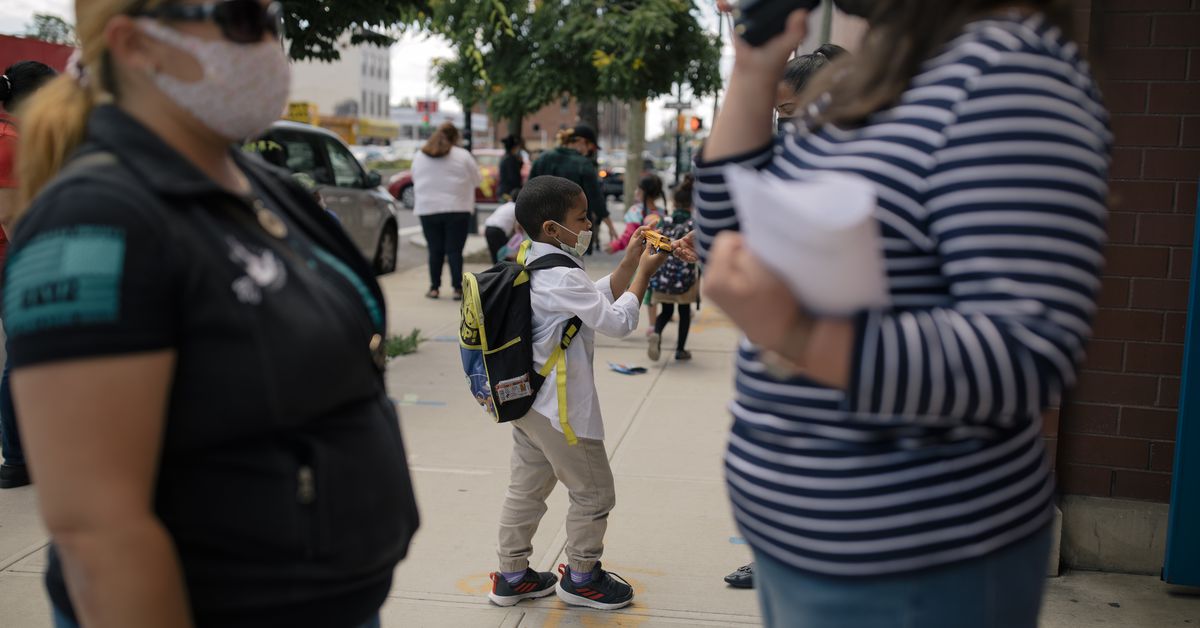Superintendents detail digital divide in education suit filing | Coronavirus
Administrators from six public school districts helped bolster a recent argument by plaintiffs in the landmark Yazzie/Martinez v. State of Mexico lawsuit that at-risk students are suffering from a lack of technology during the coronavirus pandemic amid a massive shift to remote learning.
In an expanded motion filed on Christmas Eve in the state’s First Judicial District Court, attorneys added statements from superintendents across northwestern New Mexico that showed how the lack of access to computers and internet service has hurt their poorest students since COVID-19 arrived in March.
Superintendents from the Cuba Independent School District, Grants-Cibola County Schools, Gallup-McKinley County Schools, Zuni Public Schools, Jemez Valley Public Schools and Peñasco Independent Schools said a significant portion of their students, especially those living in remote Native American communities, have struggled to participate in virtual classroom settings.
While each district had unique issues tied to the technology gap, all of the superintendents said their districts could not afford the costs of correcting the problems.
Gallup Superintendent Mike Hyatt said in the motion his district is geographically the largest in the state, covering 4,857 square miles, and more than 2,000 of the 11,000 students it serves cannot be reached either through Wi-Fi or phone services.
“The COVID-19 pandemic has exacerbated an already unfair system in which some districts have broadband Wi-Fi service across the district, and other districts, like Gallup, do not,” Hyatt said in the document.
In their initial motion Dec. 15, the plaintiffs said school districts and charter schools have failed to provide all children with the tools necessary for remote learning.
The state filed a notice Dec. 22 extending the deadline for its response until Jan. 5.
Public Education Department spokeswoman Carolyn Graham, when asked to comment on the new development in the case, referred to Public Education Secretary Ryan Stewart’s statement Dec. 15, in which he defended the agency’s efforts to provide students with tools needed to learn online.
Stewart said the agency has worked with schools, internet service providers and a variety of nonprofit partners to help bridge the digital divide.
“The problem of internet access, so critical for education during this pandemic, is not new to New Mexico and will not be resolved entirely in one year,” Stewart said at the time.
Santa Fe attorney Daniel Yohalem, who represents some of the plaintiffs, agreed the tech divide wasn’t an issue that began with the pandemic.
However, he said, “The judge ordered them two years ago to deal with the lack of equity and technology because that was going to affect kids. That was before the pandemic, when the court was simply saying, ‘Look, if using technology is a part of education today, then kids need to learn how to do that and use it for research and for writing.’ Poor kids don’t have access to that.”
Perhaps the biggest challenge school districts cited was a lack of internet in students’ homes.
Peñasco Superintendent Lisa Hamilton said families there have only one internet provider, and a recent study conducted by Verizon Communications Inc. indicated only 1 out of 40 families in the area have sufficient cellular data to connect to the internet via a hotspot device.
Hamilton said a Verizon official told her the district would need to spend $100,000 on infrastructure to improve internet access in the community, which the district does not have.
Cuba Superintendent Karen Sanchez Griego said about 85 percent of her students do not have broadband access, causing the district to lose communication with some kids. The district hired several technicians to upload a week’s worth of school assignments onto thumb drives, she said, and then bus drivers attempted to deliver them to students.
The Zuni district is installing equipment on three school buses that could provide up to 20 gigabytes of broadband to serve as mobile sites for families, 70 percent of whom lack internet access, Superintendent Daniel Benavidez said.
Zuni also recently purchased hotspots and data plans for a minimum of four months for students and families who do not have sufficient connectivity, Benavidez said, but he called it a temporary solution.
Max Perez, Grants-Cibola County Schools’ superintendent, said his district can neither afford to negotiate with local internet providers nor hire additional tech staff to support expanded internet access.







